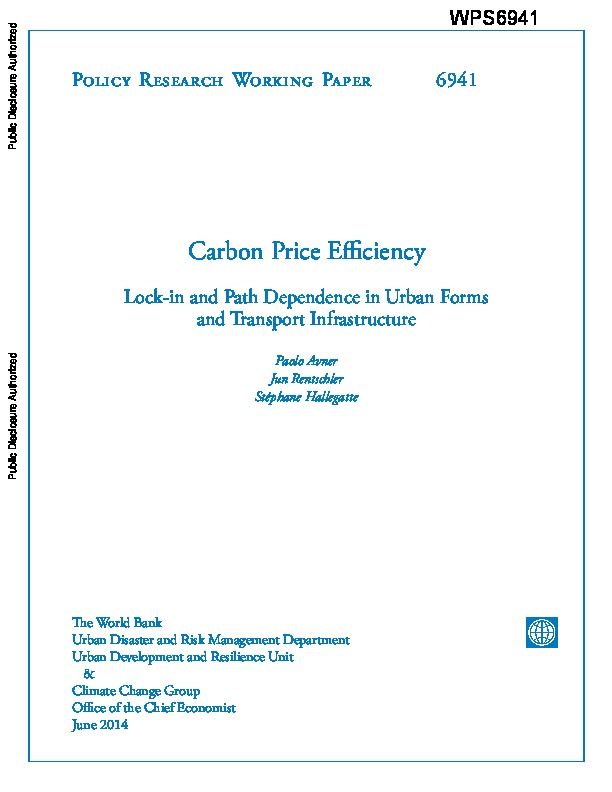Carbon Price Efficiency Lock-in and Path Dependence in Urban Forms and Transport Infrastructure
By Paolo Avner ,Jun Rentschler, Stéphane Hallegatte
This paper investigates the effect of carbon or gasoline taxes on commuting-related CO2 emissions in an urban context. To assess the impact of public transport on the efficiency of the tax, the paper investigates two exogenous scenarios using a dynamic urban model (NEDUM-2D) calibrated for the urban area of Paris: (i) a scenario with the current dense public transport infrastructure, and (ii) a scenario without. It is shown that the price elasticity of CO2 emissions is twice as high in the short run if public transport options exist.
